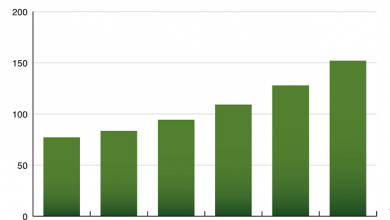Meeting the Challenges of Over Dimension Cargo With Accurate Fuel and Fleet Monitoring Solutions

Over Dimension Cargo (ODC) is a specialised transportation industry for carrying ultra-heavy and extremely large cargo such as nuclear chambers, wind turbine blades, ultra-high-tension transformers and sheet steel coils. Typical trailer trucks carrying such 90-tonne and above cargo have 20-22 axles and over 100 wheels.
Each round trip is a specialised transportation project. Pilot cars and rear guard vehicles often form part of the convoy, measuring road widths, road shoulders, culvert capacities, and the height of overhead barriers. Since even a small damaged road section may require a significant diversion (often adding a 100km journey), seldom do two round trips cover the same distance.
Specialized drivers guide these massive trailers with engineering precision that is difficult to achieve on chaotic Indian roads. Tracking each trailer’s progress, ETA and route deviation planning and tracking is an ongoing daily task for the project office.
The trailers are high fuel consumers, consuming between 1.25 km / litre (on an empty trailer) to 0.6 km / litre on full load. A single trip may require nearly 3,000 litres of fuel, and fuel constitutes significantly more than 50% of the operational cost of each trip.
A 2200km round trip may need 9-12 refuelling stops. Since many of these trailers can’t negotiate the constrained space of highway gas stations, the assistance vehicles often bring diesel in containers. Therefore, refuelling is unmetered and runs the risk of pilferage.
Save on fuel costs with reliable fuel monitoring
An accurate and reliable fuel monitoring system brings greater transparency and accountability to each refuelling event, making it possible to measure each refuelling incident and generate instant alerts to transportation control towers. Validating refuelling in real-time results in better incident investigation, as bundled and historical refuelling data is simply not actionable.
Combined with geofences, the control tower can be alerted when trailers try to refuel at blacklisted gas stations.
When integrated with the transportation company’s ERP system, a reliable fuel monitoring solution can generate dynamic trip costing, allowing better assessment of trip profitability. Daily money transfers to fleet cards are now based on actual stock-in trade, which allows daily fuel stock accounting for in-transit trucks to enable better fuel inventory management.
OMNICOMM’s fuel monitoring solution uses fuel-level sensors with an unbeaten 99.2% accuracy, enabling customers to measure fuel consumption to plan refuelling and forecast costs with confidence, track vehicles in real time, plan technical maintenance and detect expensive and damaging behaviours such as engine idling, dangerous driving, fuel wastage and theft.
Logging real-time fuel consumption for each lap of the trip under specific load, traffic and driver combinations facilitates better route analytics using detailed reports on the OMNICOMM Online fleet management platform. Correlating mileage with CAN bus data from compatible on-board vehicle terminals on clutch-pedal positions, acceleration, braking and speeding enables better driver analytics and opportunities to optimize safety and working culture.
Case study: Pan-India ODC boosts bottom line by 4%
While working with a Mumbai-based pan-India ODC cargo logistics company, OMNICOMM discovered that for a 90T trailer which covers 2200km round trips, the actual fuel consumption was about 2,600 litres. The trailer crew was claiming that consumption was 3,200 litres. With the potential to optimise 600 litres of excess fuel being claimed on each trip, the ROI was obvious.
Armed with detailed data from OMNICOMM’s industry-leading 99.2% accurate fuel sensors and sophisticated analytics, the client identified fuel pilferage incidents. In response, they took disciplinary action against errant drivers and devised an incentive scheme for others that paid the drivers 50% of the total fuel savings. The client was able to derive significant savings that ensured a payback for investment in less than 3 months on 50 vehicles equipped with Omnicomm fleet management and monitoring solution.
12 months later, the fuel monitoring system has resulted in an improved bottom line of 4%. The driver salaries and extra incentives are the ODC carrier’s best driver retention strategy. There is greater transparency of the actual cost of route operations, which has resulted in sharper route-wise price quotes, based on actual historical costs. The company’s management sees the system as a digital trail of all transactions, reducing manual operations and accounting irregularities to result in better sleep at night.
Author:
Mohit Mehrotra
Managing Director
OMNICOMM India
Published in Telematics Wire




